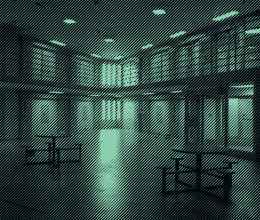Siddique Hasan was convicted for his alleged role in the murder of prison guard William Vallandingham during the Lucasville prison riot in 1993. In April 2003, Hasan filed for a Writ of Habeas Corpus in U.S. District Court. As part of that litigation, his attorneys filed a Motion to Conduct Discovery and a Motion for Evidentiary Hearing on January 8, 2004. On June 14, 2004, U.S. District Court Magistrate Merz issued a Decision and Order Granting in Part and Denying in Part the Motion for Discovery and Denying Without Prejudice the Motion for Evidentiary Hearing.
Legal Theory
Hasan, in fact, was not the killer, a contention supported by testimony in trials of other Lucasville defendants, by at least eight witnesses, and various affidavits. In addition, the sole evidence linking Hasan to the murder is testimony by another inmate who has since recanted.
Status Update
We are amicus on this federal habeas case. Our Motion for Leave to File an Amicus Brief in Support of Hasan’s Objections to Magistrate’s Recommendations was filed on October 11, 2006. On October 24, 2006, that Motion was granted. On March 28, 2007, we filed an additional motion alleging error for failure to give effect to mitigation, and to weigh new mitigation that had been previously excluded from being presented. On April 2, 2007, the Ohio Attorney General was granted leave to respond to the additional authority and on April 10, 2007 filed their response. On Nov. 16, 2010, the state filed a motion to set a status conference, which was denied the same day. The magistrate issued a Dec. 29, 2010 report and recommendations as to how the court should resolve the case. Hasan sought an extension and filed an appeal of the magistrate’s decision on Apr. 1, 2011. The State filed its response Apr. 13, 2011.
In the interim, the U.S. Supreme Court decided a case, Cullen v. Pinholster, in which it limited the role of new evidence in federal courts' habeas review of state court decisions. Hasan filed an unopposed motion on April 13 to schedule briefing on the impact of the recent U.S. Supreme Court decision in Pinholster, which was granted April 14. On May 5, Hasan filed his brief. Currently, the parties are still discussing the applicability of the Pinholster case and whether the case can be appealed. On June 7, 2011, the court issued an opinion on the impact of Cullen v. Pinholster. Hasan filed his objections to the court's opinion on June 24. The court scheduled oral argument and evidentiary hearing for October 20, 2011 before Judge Dlott Cincinnati.
On November 17, 2011, an order granting Hasan leave to obtain limited discovery was entered. The parties are now required to file a joint discovery status report or jointly request a telephonic conference regarding the status of discovery on or before February 28, 2012. On December 16, 2011 the court granted a motion to consolidate this case with the case Robb v. Ishee for the sole purpose of better management of discovery. The two cases have similar underlying facts and circumstances and involve similar materials. On March 26, 2012 the Court issued an Opinion and Order regarding a status conference held involving the two cases and third added to the consolidation, Were v. Ishee, The Court issued a Stipulation and Protective Order binding all counsel in these cases because of the sensitive nature of the documents and materials produced during discovery and directing that all discovery related requests, motions and notifications be directed to the consolidating court with notice to the District Judge assigned to the full case. The production schedule calls for cooperation and sharing of materials between the consolidated parties’ counsel. A discovery hearing and status conference was conducted on February 21, 2013. On June 11, 2013 and August 8, 2013 the court held status conferences. On August 12, 2013 the Judge issued a scheduling order requiring all Petitioners’ motions for additional discovery must be filed no later than December 1, 2013.








